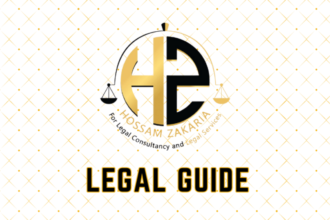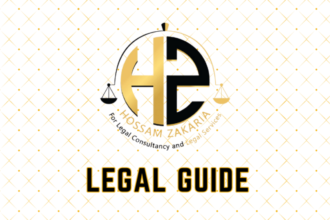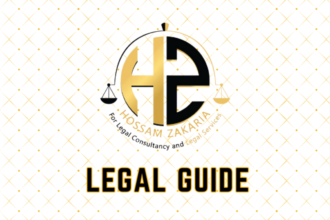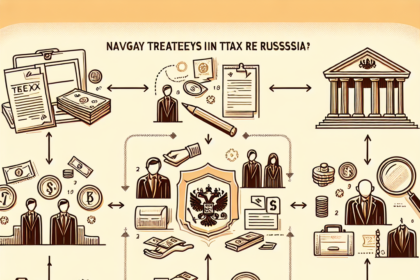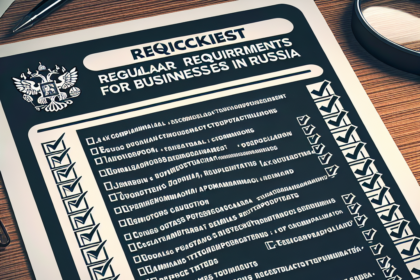Business Law in Russia
Introduction
Business law in Russia encompasses a broad range of legal disciplines necessary for the establishment, operation, and dissolution of businesses within the country. This comprehensive guide aims to provide an in-depth understanding of the key legal principles governing business activities in Russia. By examining company formation, corporate governance, contract law, intellectual property rights, employment law, taxation, and dispute resolution, businesses can ensure compliance with Russian regulations and optimize their operations.
1. Company Formation in Russia
1.1 Types of Business Entities
Russia offers various forms of business entities, each with its own set of regulations and characteristics:
- Individual Entrepreneur (IP): Suitable for small businesses, with the owner having unlimited liability.
- Limited Liability Company (LLC): The most common business structure, offering limited liability to its members.
- Joint-Stock Company (JSC): Suitable for larger businesses, can be either public (PJSC) or private (PJSC).
- Partnerships: Includes full partnerships and limited partnerships, where partners have varying degrees of liability.
- Branches and Representative Offices: For foreign companies operating in Russia.
1.2 Steps to Establish a Business
- Choosing a Business Structure: Determine the appropriate legal form based on business needs.
- Registering with Authorities: Submit required documents to the Federal Tax Service.
- Obtaining Necessary Licenses: Acquire specific licenses based on business activities.
- Opening a Bank Account: Establish a bank account for business transactions.
- Registering with Social Funds: Register with the Pension Fund, Social Insurance Fund, and Compulsory Medical Insurance Fund.
2. Corporate Governance
2.1 Board of Directors
In Russia, the board of directors plays a crucial role in managing corporate affairs, particularly in joint-stock companies. Responsibilities include:
- Establishing strategic goals and objectives.
- Overseeing executive management.
- Approving major transactions and financial statements.
- Ensuring compliance with legal and regulatory requirements.
2.2 Shareholders’ Rights
Shareholders in Russian companies have specific rights, including:
- Voting on major corporate decisions.
- Receiving dividends.
- Accessing corporate records.
- Participating in general meetings.
3. Contract Law
3.1 Essential Elements of a Contract
A valid contract in Russia must contain:
- Offer and Acceptance: A clear offer by one party and acceptance by another.
- Consideration: Something of value exchanged between the parties.
- Intention to Create Legal Relations: Both parties must intend to be legally bound.
- Capacity: Parties must have the legal capacity to enter into a contract.
- Legality of Purpose: The contract’s purpose must be legal.
3.2 Breach of Contract and Remedies
When a breach occurs, remedies may include:
- Damages: Monetary compensation for losses.
- Specific Performance: Court order to fulfill the contract.
- Rescission: Cancellation of the contract.
- Injunction: Court order preventing certain actions.
4. Intellectual Property Rights
4.1 Types of Intellectual Property
Russia recognizes several types of intellectual property, including:
- Trademarks: Protects brand names, logos, and slogans.
- Patents: Protects new inventions and innovations.
- Copyrights: Protects original works of authorship.
- Industrial Designs: Protects the visual design of products.
4.2 Enforcement of IP Rights
To enforce IP rights, owners can:
- File lawsuits for infringement.
- Seek injunctions to prevent further use.
- Claim damages for unauthorized use.
5. Employment Law
5.1 Employment Standards
Russian employment law sets minimum standards for:
- Wages: Minimum wage requirements.
- Working Hours: Maximum hours and overtime rules.
- Leaves: Entitlements to various types of leave (e.g., maternity, sick).
- Termination: Rules for lawful termination and severance.
5.2 Workplace Safety
The Labor Code mandates:
- Safe working conditions.
- Training and supervision for employees.
- Reporting and handling workplace injuries.
6. Taxation
6.1 Types of Taxes
Businesses in Russia are subject to several types of taxes, including:
- Corporate Income Tax: Levied on the income of companies.
- Value Added Tax (VAT): Applied to the sale of goods and services.
- Payroll Taxes: Contributions to social insurance funds.
- Property Tax: Levied on the ownership of property.
6.2 Tax Compliance
Businesses must:
- File annual tax returns.
- Maintain accurate financial records.
- Pay taxes on time to avoid penalties.
7. Dispute Resolution
7.1 Litigation
Litigation involves taking disputes to court. Steps include:
- Filing a statement of claim.
- Responding to the claim.
- Pre-trial procedures (discovery, settlement discussions).
- Trial and judgment.
7.2 Alternative Dispute Resolution (ADR)
ADR methods include:
- Mediation: A neutral third party helps negotiate a settlement.
- Arbitration: A binding decision is made by an arbitrator.
- Negotiation: Direct discussions between parties to resolve issues.
8. Consumer Protection
8.1 Consumer Rights
Consumers in Russia have rights to:
- Safety: Products must be safe for use.
- Information: Accurate and clear information about products/services.
- Redress: Remedies for faulty products/services.
8.2 Consumer Protection Laws
Key laws include:
- Law on Protection of Consumer Rights: Regulates fair trading practices.
- Competition Law: Prevents anti-competitive practices and deceptive marketing.
9. Environmental Law
9.1 Environmental Regulations
Businesses must comply with:
- Federal Law on Environmental Protection: Controls pollution and hazardous waste.
- Water Code and Forest Code: Regulates the use of natural resources.
9.2 Corporate Social Responsibility (CSR)
Businesses are encouraged to:
- Implement sustainable practices.
- Reduce carbon footprints.
- Engage in community development.
10. Financial Regulations
10.1 Banking and Finance Law
Key regulations govern:
- Banking: Supervised by the Central Bank of Russia.
- Securities: Governed by the Federal Service for Financial Markets.
10.2 Anti-Money Laundering (AML)
Businesses must implement:
- AML Programs: Policies to prevent money laundering.
- Know Your Customer (KYC): Verification of clients’ identities.
11. Real Estate Law
11.1 Property Ownership
Laws cover:
- Title Registration: Ensures legal ownership.
- Land Use Regulations: Zoning and development laws.
11.2 Leasing and Tenancy
Rules for:
- Commercial Leases: Terms and conditions for renting commercial property.
- Residential Tenancies: Rights and obligations of landlords and tenants.
12. Bankruptcy and Insolvency
12.1 Insolvency Proceedings
Businesses facing insolvency can:
- File for bankruptcy.
- Propose a restructuring plan.
- Negotiate with creditors.
12.2 Creditors’ Rights
Creditors can:
- Claim secured interests.
- Participate in insolvency proceedings.
- Seek recovery through court orders.
13. International Trade Law
13.1 Import and Export Regulations
Businesses must:
- Comply with customs regulations.
- Obtain necessary import/export licenses.
- Adhere to trade agreements.
13.2 Trade Disputes
Resolution through:
- World Trade Organization (WTO): Dispute settlement mechanisms.
- Bilateral Agreements: Dispute resolution clauses.
14. Competition Law
14.1 Anti-Competitive Practices
Prohibited practices include:
- Price Fixing: Collusion to set prices.
- Market Division: Agreements to divide markets.
- Monopolistic Practices: Abuse of dominant position.
14.2 Enforcement
Regulated by the Federal Antimonopoly Service, enforcement includes:
- Investigations.
- Penalties for violations.
- Legal proceedings.
15. Technology and E-Commerce Law
15.1 Data Protection
Businesses must:
- Comply with the Federal Law on Personal Data.
- Implement data security measures.
- Obtain consent for data collection and use.
15.2 E-Commerce Regulations
Laws cover:
- Online Contracts: Validity and enforceability of digital agreements.
- Consumer Protection: Safeguards for online shoppers.
16. Conclusion
Understanding and navigating business law in Russia is essential for compliance and success. From company formation and corporate governance to intellectual property and dispute resolution, this guide provides a detailed overview of the key legal aspects. By staying informed and adhering to regulations, businesses can thrive in the Russian market.
FAQs
- What are the main types of business entities in Russia?
- Individual entrepreneur, limited liability company, joint-stock company, partnerships, branches, and representative offices.
- What are the essential elements of a contract in Russia?
- Offer and acceptance, consideration, intention to create legal relations, capacity, and legality of purpose.
- What are the key employment standards in Russia?
- Minimum wage, working hours, leaves, and termination rules.
- What taxes do businesses in Russia need to comply with?
- Corporate income tax, VAT, payroll taxes, and property tax.
- What is the role of the board of directors in corporate governance?
- Overseeing management, setting policies, hiring the CEO, and ensuring financial accountability.
By understanding these aspects of business law in Russia, companies can better navigate the legal landscape and ensure they operate within the bounds of the law.
